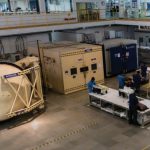Glossary
What is manufacturing collaboration?
Manufacturing collaboration refers to the synergistic approach where companies, suppliers, and stakeholders engage in joint efforts to innovate, streamline production processes, and enhance product quality. At its core, it embodies the strategic partnership and coordination across various sectors of the manufacturing industry, aiming to leverage shared knowledge, technology, and resources to achieve mutually beneficial outcomes. This collective endeavor is increasingly supported by technological advancements, such as manufacturing collaboration software, which facilitates real-time communication, project management, and integrated workflows. As businesses strive towards greater efficiency and market adaptability, manufacturing collaboration stands as a cornerstone practice, fostering resilience, and fostering competitive advancement.
Key Principles of Manufacturing Collaboration
Manufacturing collaboration is underpinned by several fundamental principles that dictate its success and sustainability. These principles serve as the backbone for building a strong collaborative framework within the manufacturing industry.
Shared Goals
The essence of manufacturing collaboration lies in the mutual alignment of goals among all parties involved. From the outset, companies establish common objectives that drive the collective efforts of suppliers, partners, and internal teams. This strategic unification ensures that each action taken is not just beneficial to individual entities but advances the group’s shared aspirations. By synchronizing their targets, organizations can move forward cohesively, leading to efficient use of resources and the achievement of superior, collective results that might be unattainable independently.
Open Communication
A hallmark of effective manufacturing collaboration is the commitment to openness and transparency in communication. Regular and clear dialogue helps in dismantling organizational silos, allowing for an uninhibited exchange of ideas and knowledge. Such an environment encourages participants to voice concerns, share insights, and contribute to problem-solving. The establishment of trust, a byproduct of open communication, is crucial for fostering a collaborative culture that is resilient to the challenges of innovation and industrial competition.
Flexibility and Adaptability
The manufacturing sector is dynamic, with frequent shifts in market trends, consumer demands, and technological advancements. Collaborative endeavors must, therefore, embody flexibility and adaptability. Partners in collaboration should be prepared to respond to new data, pivot in the face of unforeseen events, and reorient strategies to maintain competitiveness. The agility to adapt not only ensures the collaboration’s relevance but also empowers it to capitalize on emerging opportunities.
Mutual Benefit
Collaboration is not just about shared efforts but also about shared rewards. Each entity involved in the collaborative process should gain tangible benefits, whether it’s access to new markets, shared technological advancements, cost savings, or enhanced capabilities. The principle of mutual benefit maintains motivation and commitment among all parties, ensuring that the collaboration is not one-sided but a partnership of equal value and investment.
Continuous Improvement
Lastly, a continuous improvement mindset is integral to manufacturing collaboration. Collaborative groups should engage in regular assessments of their processes and outcomes, striving for incremental enhancements. This iterative approach to collaboration means that practices are constantly refined, efficiencies are identified and exploited, and the collaboration as a whole remains at the forefront of manufacturing excellence. It is through this dedication to perpetual growth and development that collaborative networks thrive and sustain their advantage in the marketplace.
Challenges in Manufacturing Collaboration
Manufacturing collaboration, despite its numerous benefits, presents a unique set of challenges that can impede its success. One of the primary difficulties is the integration of diverse processes. Each organization brings its own set of practices, standards, and cultures to the table, and aligning these varied elements requires significant effort and meticulous planning. The complexity of this integration often extends to technological systems where compatibility and interoperability issues can arise, necessitating robust IT solutions and sometimes costly adaptations.
Protecting intellectual property (IP) is another significant concern. Collaborations often involve sharing sensitive information, which can lead to disputes if there are not clear understandings and legal frameworks in place. Establishing trust while safeguarding proprietary knowledge is a delicate balance that requires careful negotiation and often, formal agreements.
Cultural differences, too, can be an obstacle, with varying corporate cultures, languages, and business practices leading to misunderstandings and misaligned expectations. Effective collaboration demands a harmonious blend of these diverse cultures, which can only be achieved through awareness and sometimes, a change management strategy.
Furthermore, the allocation of resources poses a substantial challenge. Determining how to allocate costs and benefits fairly requires transparency and can be contentious, especially when the collaboration involves multiple parties with differing levels of investment and expected returns.
Addressing these challenges is crucial for the successful implementation and longevity of manufacturing collaborations. It requires strategic planning, clear communication, and a commitment to resolving issues collaboratively.
Technologies Enabling Manufacturing Collaboration
Manufacturing Collaboration Software
Specialized software facilitates collaboration by providing tools for project management, communication, and data sharing.
Cloud Computing
The cloud enables real-time data sharing and collaboration across geographies, making it an indispensable technology for modern manufacturing collaboration.
IoT and Industry 4.0
The Internet of Things (IoT) and advanced manufacturing techniques allow for more data-driven decision-making and process integration.
Strategic Manufacturing Collaboration Platforms
Platforms that focus on strategic alliances provide frameworks and tools for long-term collaborative partnerships.
Advanced Manufacturing Collaborative
Groups or consortia of manufacturing entities focus on innovation and best practices, leveraging collective knowledge and resources to push the boundaries of what’s possible in manufacturing.
To conclude, Manufacturing collaboration remains a critical component of the modern industrial landscape, fostering innovation, efficiency, and a competitive edge in a rapidly evolving global market.
Learn more
Proactive Intelligence In Manufacturing






